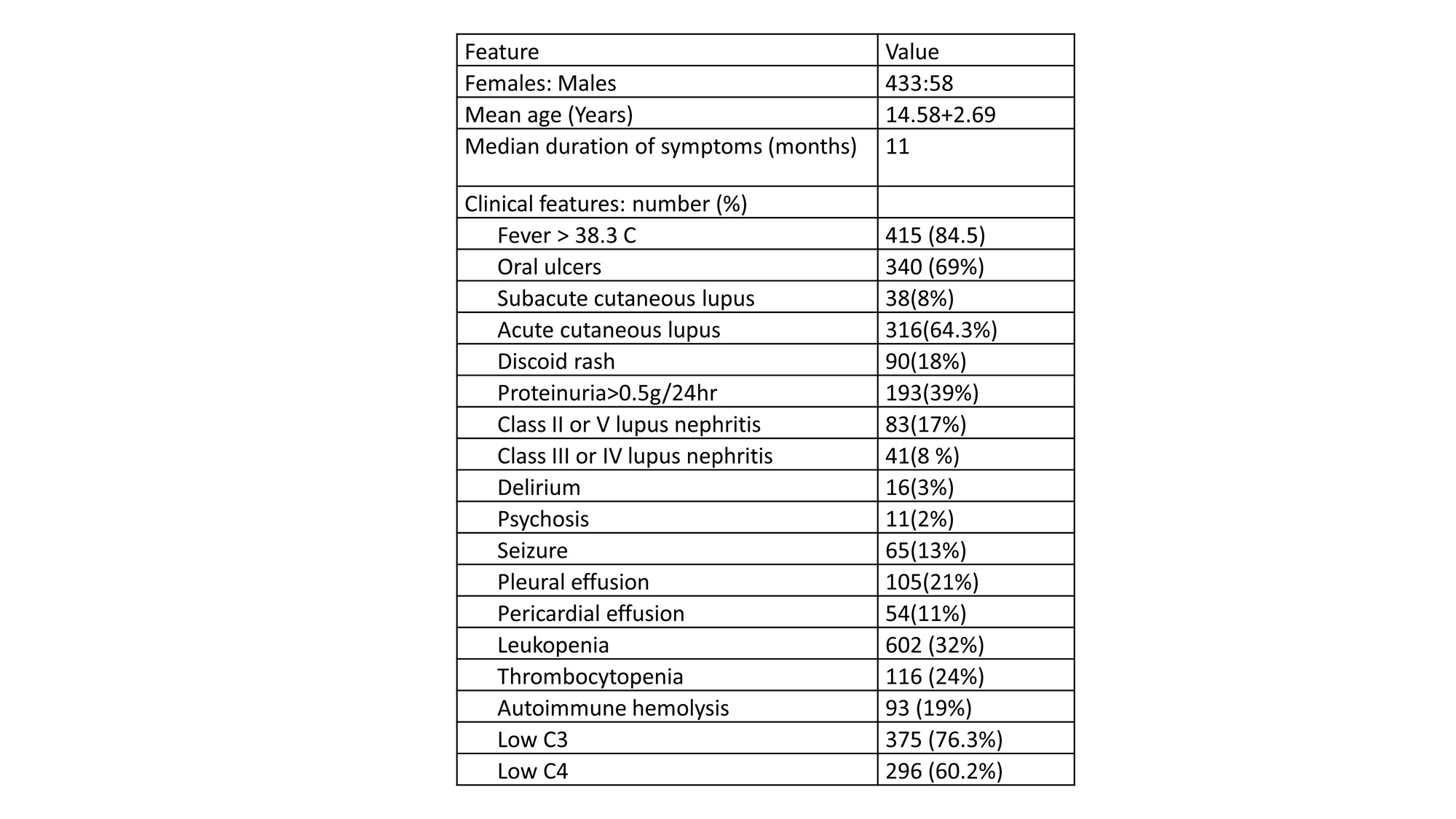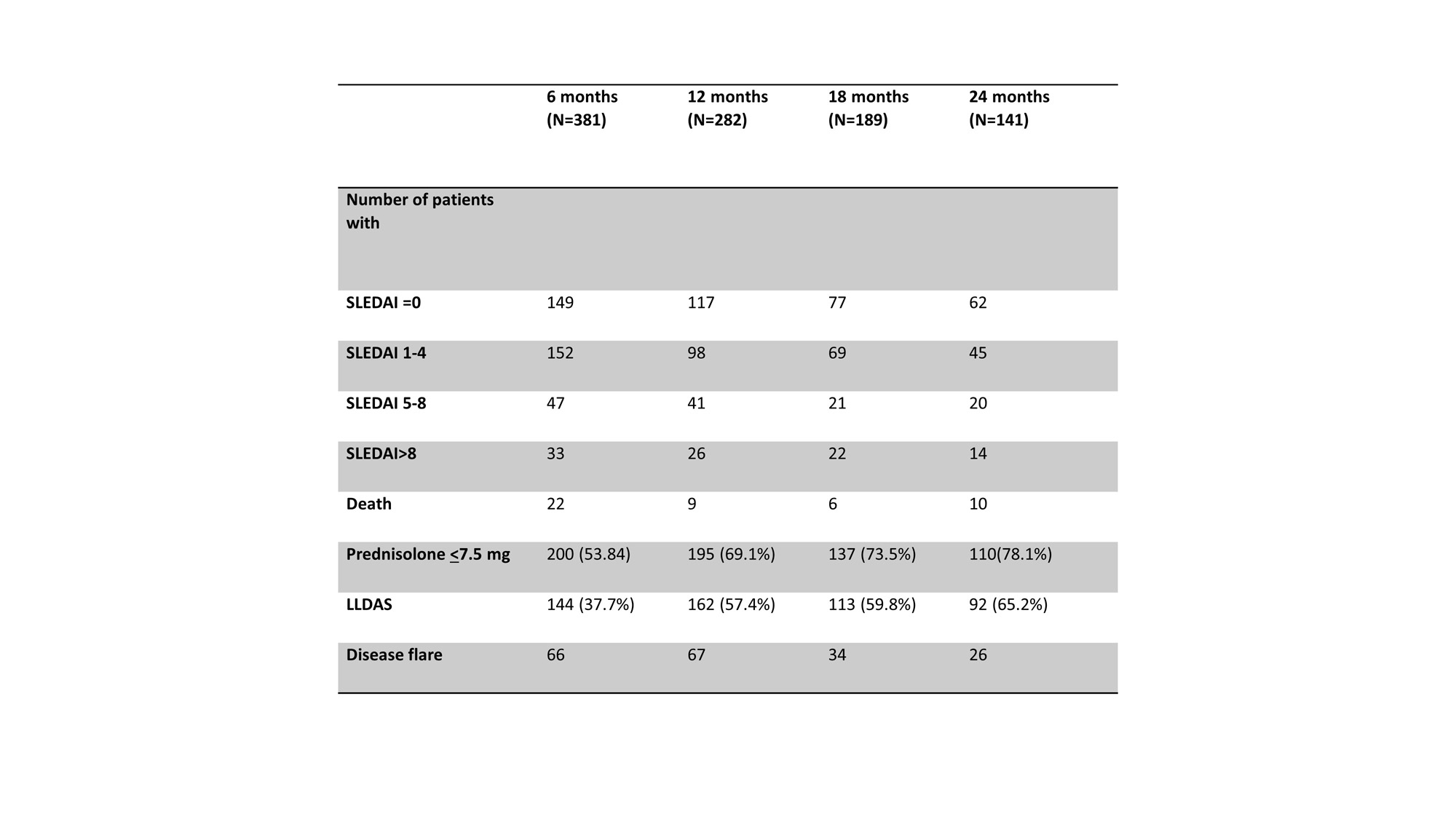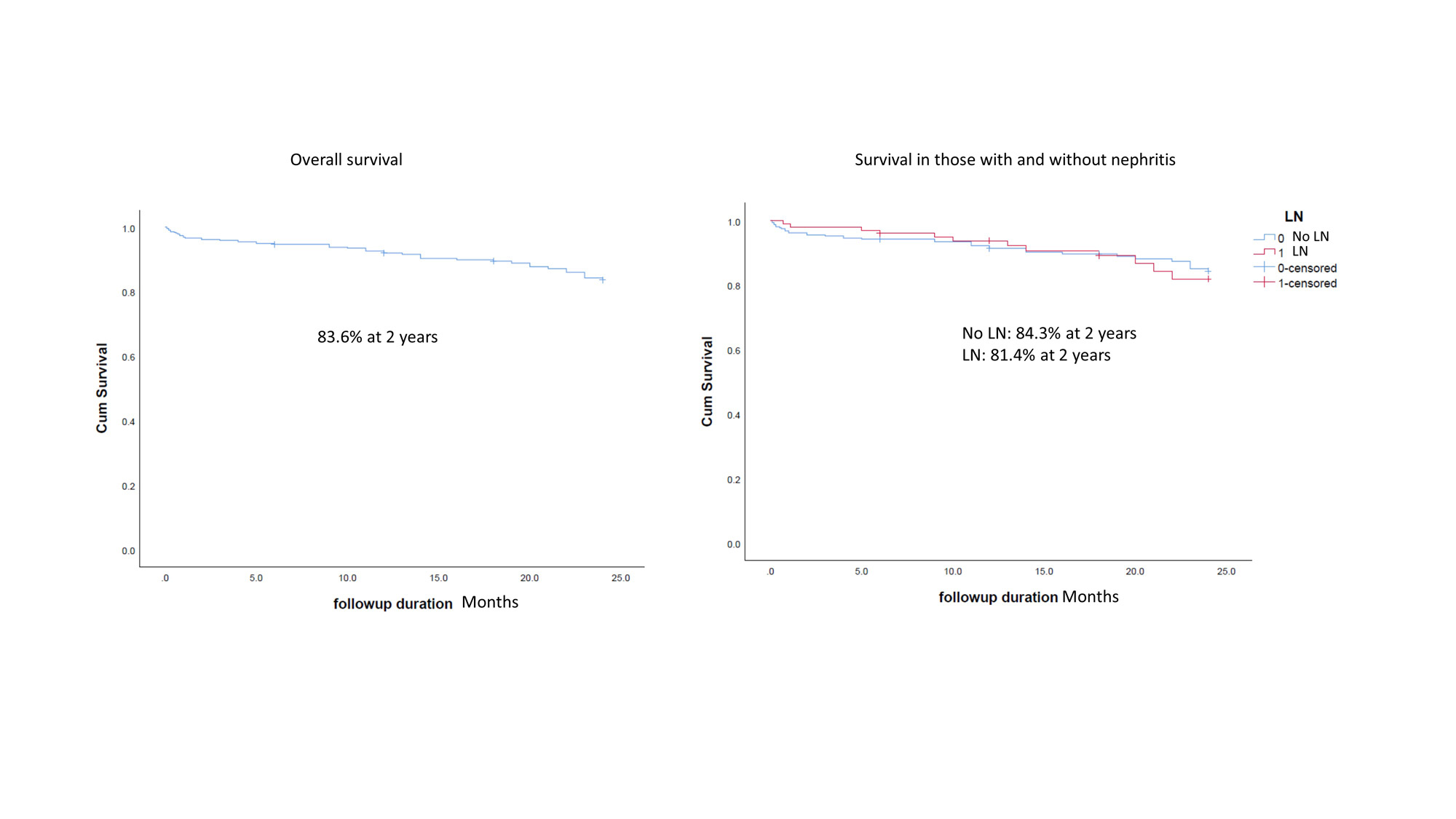Session Information
Date: Monday, November 13, 2023
Title: (1221–1255) Pediatric Rheumatology – Clinical Poster II: Connective Tissue Disease
Session Type: Poster Session B
Session Time: 9:00AM-11:00AM
Background/Purpose: Juvenile onset SLE (jSLE) has more severe disease and has poorer outcome as compared to adults SLE. Ethnicity affects clinical course and disease outcome in SLE. There is a lack of data on outcomes from inception cohort of jSLE from South Asia.
Methods: Patients with SLE with ≥4 ACR classification criteria for SLE, who were enrolled in the Indian SLE inception cohort for research (INSPIRE) and had onset of symptoms before the age of 18 years were included. Data on their clinical features, autoantibodies, activity as well as short term outcome including death was extracted from the database at baseline and at every 6 months follow up for 24 months. Lupus low disease activity (LLDAS) was calculated. Baseline predictors of attainment of LLDAS and flare at 1 year were also studied. All variables with p=0.1 were put in multivariate analysis using binary logistic regression.
Results: Among 2503 patients enrolled in INSPIRE cohort 491(19.6%) had jSLE. Their mean age at onset of disease was 14.58+2.69 years and median duration of symptoms was 10 months. Major clinical features were : fever (84.5%). malar rash/ACLE (64.3%), oral ulcers (69%), pleural effusion (21%), Seizures (13%), Leucopenia (33%), and Class III/IV LN (17%) (Table 1), BILAG (A/B) in neuropsychiatric domain was present in 55, renal domain in 195, and gastrointestinal domain in 29 patients. Among autoantibodies, antibodies to dsDNA (71.9%), nucleosome (39%), histones (35%), RO_52 (30%), RO_60 (35%), La (11%), ribosomal P protein (38%), nRNP (51%), Sm (42%), Scl-70 (3%). The mean SLEDAI score was 13.05+ 8.19 and PGA score was 1.22+0.89. There were 47 deaths during 2-year follow-up period. The actuarial survival at 2 years was 83.6%. There was no difference in survival between patients with LN or those without it. (Figure 1). LLDAS was achieved at 1 year by 57.4% and at 2 years by 65.2% in patients who had completed that point of follow up (Table 2). Among those who achieved LLDAS at 12 months, in 78 where 24 month follow up was available, 59 (75%) had sustained remission. None of the clinical features or antibodies at baseline were major predictors of achieving LLDAS at 1 year. Presence of SCLE (p=0.049) and anti-Ro 52 antibody (p=0.049) reduced the odds of achieving LLDAS while presence of psychosis (p=0.033) and acute confusional state (p=0.022) increased the odds of achieving LLDAS at 12 months. The baseline factors associated with flare at 12 months were discoid rash (p=0.002), leucopenia (p=0.007), low C3 (p=0.027), low C4 (p=0.005) and anti-nucleosome antibodies (p=0.014). On multivariate analysis only anti-nucleosome antibodies (OR 0.503 (CI 0.270-0.935), serum C3 levels (OR 0.987 (0.976-0.998) and discoid rash (OR 2,617 (1.336-5.126) were significantly associated with flare.
Conclusion: jSLE in India is associated with significant early mortality. Almost one-third patients do not achieve low disease activity even at 2 years of treatment. Thus, there is a need for better therapeutic options for lupus
To cite this abstract in AMA style:
Aggarwal A, Gupta R, Rajasekhar L, Mathew A, Ghosh P, Kavadichanda C, Shobha V, Das B, Rathi M, Jain A, Lawrence A. Outcome of Pediatric Lupus in South Asia: Data from Indian SLE Inception Cohort for Research (INSPIRE) [abstract]. Arthritis Rheumatol. 2023; 75 (suppl 9). https://acrabstracts.org/abstract/outcome-of-pediatric-lupus-in-south-asia-data-from-indian-sle-inception-cohort-for-research-inspire/. Accessed .« Back to ACR Convergence 2023
ACR Meeting Abstracts - https://acrabstracts.org/abstract/outcome-of-pediatric-lupus-in-south-asia-data-from-indian-sle-inception-cohort-for-research-inspire/



